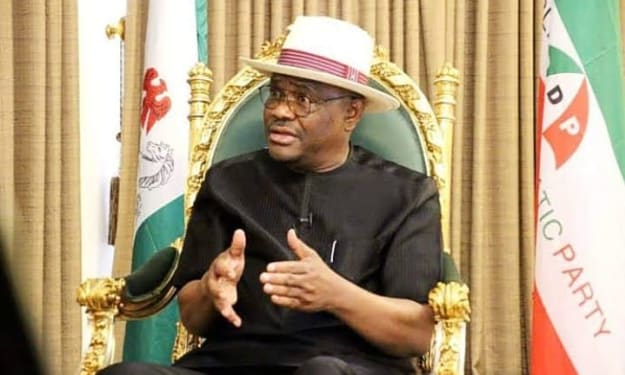APC Governors Declare Their Position on Fuel Subsidy Removal
Assessing the Implications and Way Forward
Once upon a time in the bustling city of Lagos, Nigeria, a heated debate echoed through the corridors of power and resonated with the masses. The topic at hand was none other than the controversial issue of fuel subsidy removal. People from all walks of life had their opinions, hopes, and fears regarding the matter. However, it was the All Progressives Congress (APC) governors who held the key to the nation's fate.
In a grand assembly hall, adorned with the colors of the ruling party, the APC governors gathered to declare their position on fuel subsidy removal. The atmosphere was charged with anticipation as journalists and citizens eagerly awaited their decision. The governors, representing various states across the country, sat in a circle, deep in discussion, pondering the consequences of their forthcoming statement.
Governor Ahmed, a seasoned politician known for his economic acumen, rose to address the gathering. He spoke of the pressing need for economic reforms and how the removal of fuel subsidies could redirect much-needed resources toward critical sectors such as healthcare, education, and infrastructure development. He argued that the subsidy had become a burden on the government, contributing to inefficiency, and corruption, and hindering the nation's progress.
Governor Ibrahim, a soft-spoken man with a compassionate heart, shared a different perspective. He expressed concerns about the potential hardships that ordinary citizens might face if fuel prices were to rise as a result of subsidy removal. He emphasized the need for social safety nets and targeted interventions to protect the most vulnerable sections of society from the adverse effects of the decision.
Governor Fatima, a champion of women's empowerment, raised her voice, advocating for the inclusion of gender-sensitive policies in the subsidy removal process. She stressed the importance of ensuring that women, who often bear the brunt of economic changes, were not left behind. Governor Fatima proposed initiatives that would support women entrepreneurs, provide job opportunities, and improve access to affordable transportation for working mothers.
As the discussion unfolded, it became evident that the APC governors held a diverse range of perspectives, each grounded in their experiences, the needs of their respective states, and the aspirations of their constituents. Recognizing the value of their collective wisdom, the governors decided to bridge their differences and find common ground.
After hours of deliberation, they emerged from the assembly hall, united in their resolve. The APC governors declared their position on fuel subsidy removal—a phased approach that would allow for a gradual transition, minimizing the shock to the economy and cushioning the impact on the most vulnerable.
Their decision was met with mixed reactions. Some hailed the governors' pragmatic approach, applauding their efforts to balance economic growth with social welfare. Others criticized the lack of a definitive stance, arguing that a clear and decisive course of action was needed to address the nation's challenges effectively.
In the days that followed, public debates, town hall meetings, and media discussions kept the topic alive. Citizens from all walks of life shared their concerns, hopes, and aspirations. The APC governors listened intently, recognizing the importance of engaging with the people and taking their perspectives into account.
Inspired by the outpouring of public opinion, the APC governors realized that their role extended beyond making decisions; they had a responsibility to foster an environment of transparency, accountability, and inclusivity. They vowed to establish mechanisms to monitor the utilization of savings generated from subsidy removal, ensuring that the funds were reinvested in projects that would benefit all Nigerians.
Recognizing the potential social impact, the governors initiated collaborative efforts with civil society organizations, academia, and experts to design comprehensive social safety net programs. These initiatives aimed to shield the most vulnerable segments of society from the hardships that might accompany the transition. Cash transfer schemes, subsidized public transportation, Once upon a time in the vibrant nation of Nigeria, a great debate raged regarding the contentious issue of fuel subsidy removal. It was a topic that had gripped the attention of the entire nation, sparking fervent discussions and passionate arguments. In the heart of the political landscape, the All Progressives Congress (APC) governors were preparing to declare their position on this crucial matter, fully aware of the implications their decision would carry.
In a grand conference room, adorned with the symbols of power, the APC governors gathered for a momentous meeting. The room buzzed with anticipation as journalists, activists, and citizens eagerly awaited the outcome. The governors, representing their respective states, took their seats around a large oval table, exchanging glances filled with a mixture of determination and responsibility.
As the meeting commenced, Governor James, a wise and experienced statesman, rose to address the gathering. With a calm demeanor, he acknowledged the complexities surrounding fuel subsidy removal. He emphasized that while the subsidies had been intended to cushion the impact of fluctuating oil prices on citizens, they had become an unsustainable burden on the government's finances. Governor James spoke eloquently about the need to redirect those funds toward vital sectors such as healthcare, education, and infrastructure development. He argued that this redirection would create opportunities for economic growth and ultimately benefit the people in the long run.
Governor Amina, a fierce advocate for social justice and equality, listened intently. When her turn came to speak, she shared her concerns about the potential consequences of fuel subsidy removal on the marginalized and vulnerable members of society. Governor Amina emphasized the importance of implementing robust social safety nets and targeted programs to ensure that those who would be most affected by the removal of subsidies were adequately protected. She proposed the establishment of mechanisms that would provide assistance to low-income households, promote job creation, and alleviate the burden of increased fuel prices.
Governor Ibrahim, known for his innovative and forward-thinking policies, added another dimension to the discussion. He highlighted the opportunity that fuel subsidy removal presented for promoting renewable energy sources and reducing the nation's reliance on fossil fuels. Governor Ibrahim spoke passionately about investing in alternative energy infrastructure, encouraging green technologies, and fostering sustainable transportation options. He believed that such initiatives would not only mitigate the potential negative effects of subsidy removal but also pave the way for a greener and more sustainable future for Nigeria.
About the Creator
oyetunde Timileyin
HELLO!!
My name is OYETUNDE WOLE an Expect content writer with 5 years of experience, God-fearing easy going and fun to be with.
Enjoyed the story? Support the Creator.
Subscribe for free to receive all their stories in your feed. You could also pledge your support or give them a one-off tip, letting them know you appreciate their work.







Comments
There are no comments for this story
Be the first to respond and start the conversation.